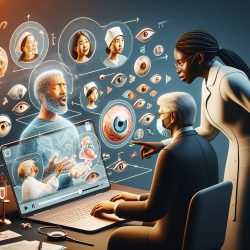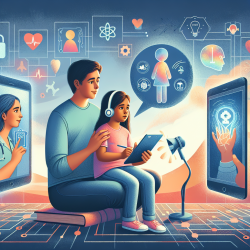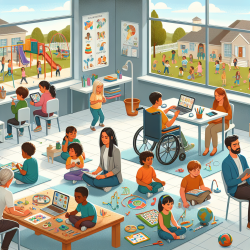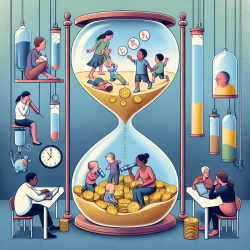Clinical decision-making is a critical skill for healthcare practitioners, including those in midwifery and speech-language pathology. A recent study titled "How does video case-based learning influence clinical decision-making by midwifery students? An exploratory study" offers valuable insights into how different learning modalities—video versus paper—impact clinical decision-making processes. This blog post explores how practitioners can leverage these findings to enhance their clinical decision-making skills.
Understanding the Study
The study involved 45 midwifery students divided into groups to engage in case-based learning (CBL) using either video or paper case modalities. The results revealed significant differences in how each group processed information and made clinical decisions.
Key Findings
- Video Case Learning:
- Psychosocial Focus: Students in the video groups paid more attention to psychosocial aspects, such as the emotional state of the patient and her family.
- Holistic Perspective: These students discussed tailored care plans that considered the well-being of both the woman and her family.
- Reduced Biomedical Interventions: They were less likely to recommend invasive procedures like vaginal examinations and electric fetal heart monitoring.
- Paper Case Learning:
- Biomedical Focus: Students in the paper groups focused more on biomedical data, such as fetal heart rates and the mother's physical condition.
- Systematic Information Gathering: These students found it easier to retain and systematically analyze information.
- Increased Biomedical Interventions: They were more likely to recommend frequent monitoring and examinations.
Implications for Practitioners
The study's findings can be directly applied to improve clinical decision-making skills in various healthcare settings, including speech-language pathology. Here are some actionable steps:
- Incorporate Video Case-Based Learning:
- Use video cases to help students and practitioners develop a more holistic, patient-centered approach.
- Encourage empathy and a deeper understanding of psychosocial factors affecting patient care.
- Balance with Paper Cases:
- While video cases are excellent for fostering empathy and holistic care, paper cases can help in developing systematic, biomedical assessment skills.
- Use a combination of both modalities to provide a balanced learning experience.
- Structured Reflection:
- Implement structured reflection sessions where students discuss what they learned from both video and paper cases.
- Encourage them to consider how different types of information (psychosocial vs. biomedical) influence their decision-making processes.
- Tailored Care Plans:
- Teach students to develop care plans that are not only based on biomedical data but also consider the emotional and psychological needs of patients and their families.
Encouraging Further Research
While this study provides valuable insights, it also highlights the need for further research to explore the long-term effects of different learning modalities on clinical decision-making skills. Practitioners are encouraged to participate in or conduct studies that examine how these findings can be applied in different healthcare fields, including speech-language pathology.
To read the original research paper, please follow this link: How does video case-based learning influence clinical decision-making by midwifery students? An exploratory study.










